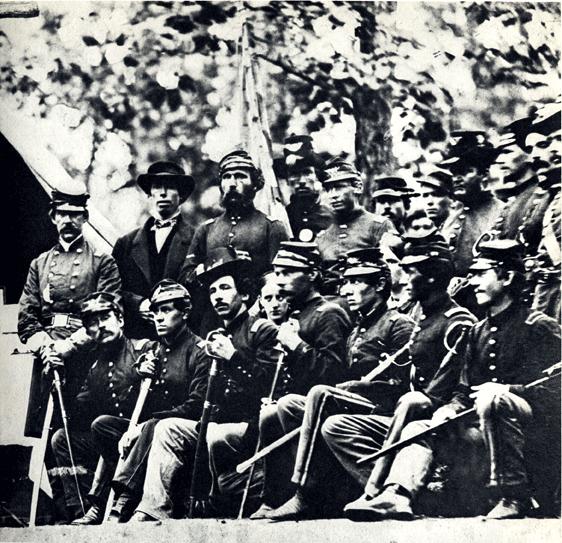The Civil War as Collecting Focus
- by Bruce E. McKinney

Civil Wars - personal and national history.
By Bruce McKinney
This month's issue of the Comet focuses on the American Civil War and by extension, all other such wars that are always occuring and seem to have always been occuring. The Civil War of the United States, 1861-1865 is but one example. In the 20th century 110 civil wars have been documented. They are so common and so violent that few people alive today are entirely untouched.
The American Civil War though is long enough past that it now belongs entirely to history. No human beings that experienced it first hand still live and so we are relieved of all first hand pain. We are then reliant on records be they books, analysis, histories, memoirs, atlases, letters, pamphlets, ribbons, guns, swords, or paintings. In its passing into history we now both remember and interpret the Civil War, investing in it meaning and emphasis by what we choose to hold close.
The majority of Americans have some tangible connection. By bloodline, their own or by marriage through a spouse, it is more common to be connected than not. These days various websites offer paths back to connections unknown, names forgotten, to events that until their rediscovery through searches, may not even have ever been hinted. Such discoveries ignite interest, encourage speculation and send us back into time to understand in personal ways what we may never have understood were our forebearer's perspectives and experiences.
Today more than half of all Americans and to a lesser extent but still a significant percentage elsewhere in the world, are looking back. For many, wars are the salient events in part because in the confusion and destruction of war, more personal history is made, recorded and remembered. It's no accident that the American Civil War has come alive again. Books, full of facts, lost to all but the cognoscenti are scanned at every hour by individuals, dot orgs, dot coms and Google - all adding to the bouliabaise of information. Windows on the past, not so long ago impenetrable walls, now open to those with the skills and interest to look. Our newest frontier is our past.
Booksellers are not necessarily scholars. Some are and others are simply scholarly. They may lack a Ph.D but have learned to understand their material and to describe it well, often incorporating the emerging terms that this generation of deja-viewers is learning to use to unearth material of personal interest. It's a challenge to describe material in ways that were historically improbable, certainly unnecessary and until a few years ago completely unknown. Today they have become necessary. The challenge of the web has not only been that more material has become available, it's that the very way the material, to be found, increasingly requires non-traditional descriptions to be captured within the scope of the new collector's searches. We are at that moment, sawing through the clear board and encountering a knot, when the seller must adjust their perspective to that of the searcher. The rudimentary title, author, place and date printed are no longer sufficient. Relevance is the new currency.